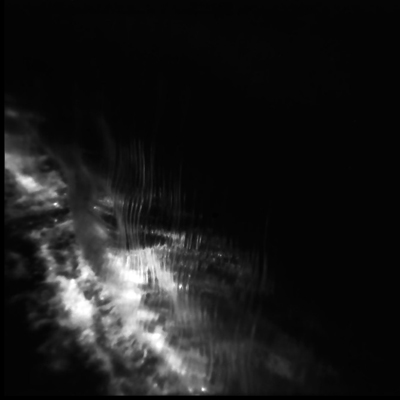 All the stuff I don’t have to say. How lucky I am.
All the stuff I don’t have to say. How lucky I am.
Like “I drive a truck of cheap perfume.” Of canned tomatoes, of cleaning supplies, I’m not sure it matters, or maybe it does in the trucking world: I drive tires vs. I drive milk. Oil vs. Seafood. Furniture. Toilets. A truck of cars. A truck of truck parts. Dissembled things. The proud cargoes of military stuff: training manuals, army tarps. To be in a convoy. To be the lead driver. Of arms. Of munitions. I don’t drive much, except myself. I’m not hauling much to speak of, except bags of groceries a few times a week. Some mornings, kids with cumbersome projects. I used to talk about driving trains, metaphorically, and wrecking trains. Train-wreck as state-of-being: the induced chaos, blind curves and collisions. I still like watching junkyard magnets pick up cars and move them around or drop them into a crusher. Some trucks carry crushed cars, a dozen at a time – neat, shimmery, windowless. I like even more the wrecking ball – not the metaphor, but the thing itself – slamming, once it gets itself in motion, into the side of a building. Softening it, then fully smacking out the center so the top collapses and the base can be dozed. And the lot cleared up and made flat again. I’d like to ride in the wrecking ball cab and feel, along with the driver (operator, I guess it would be) how the swinging builds and builds until it’s time to let the ball fly. Plan for the arcs. Count the swings. Foresee the spot, sweetened by anticipated contact, then – release.
In the book on medieval weaponry I had as a kid, the flail was my favorite. I liked the sketched concentration on the warriors’ faces, but I liked the photographs of the objects best. And though I didn’t visualize points of contact (there was no one I wanted to pulverize, I didn’t have any enemies), I did think it efficient to use the power that motion supplied and not have to sweat too much. The flail was a planet set in motion, those primitive, spiky rays like a ring of light if you got the thing orbiting fast enough. You stood at the center, holding the staff, swinging the ball on its chain, and whatever contact you made was neat and distant and clean.
I also liked maces. Maces were popular in the book, which sketched out many varieties. A truck of maces, from mace-supply. Manacles and morningstars, catapults and quarterstaffs — over a beer, how to talk about that? What’s the status-y cargo these days? Secret troop stuff, like waterboards, are out. Which, checked off on a packing slip, must’ve sounded pretty benign. Some kind of treated lumber. Or are those truckers way past “weird, what people will pay to transport,” and they just drive?
—
Lia Purpura’s new collection of essays, Rough Likeness, will be out with Sarabande Books in 2011. Her last collection of essays, On Looking, was a finalist for the National Book Critics Circle Award. Her collection of poems, King Baby, won the Beatrice Hawley Award from Alice James Books, and recent work has appeared in The New Yorker, The New Republic, Georgia Review, Agni Magazine, Orion, and elsewhere. She is Writer in Residence at Loyola University, in Baltimore, Maryland, and teaches in the Rainier Writing Workshop low-residency program.
Photo by Kristin L. Ware

1 comment
Lachlan C says:
Nov 29, 2021
Did you mean to write “dissembled,” rather than “disassembled?” Either could work but I find the latter to more resemble the clause “A truck of truck parts.”